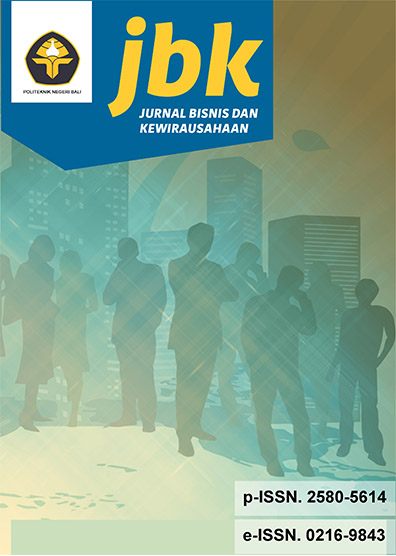Tinjauan Kritis Pola Pembelajaran Berbasis Kreatif dan Inovatif di Politeknik Melalui Konsep Collaborative Knowledge Creation
Abstract
In the current era of disruption where information technology has a large impact and influence on the development of higher education in Indonesia. The educational pattern at Polytechnic is currently encouraged to be more innovative in an effort to help the government realize the quality of human resources that are reliable and professional in meeting the needs of industry and companies so that they have high organizational competitiveness. One factor that contributes to improving organizational competitiveness is the ability of lecturers to create conducive, creative and innovative learning situations. Creative and innovative learning patterns are one of the ways in which the teaching and learning process is implemented so that learners become motivated and have competent skills and knowledge, not only hard skills but also soft skills. Polytechnics as higher education based on applied knowledge must have different characteristics from academic education. The purpose of this study is to find out: (a) how the concepts used by the lecturers in creating creative and innovative teaching and learning processes through the concepts of collaborative knowledge creation? (b) how are the students' attitudes in learning so that they have high motivation and creativity? The study was conducted in the Department of Business Administration-PNJ using qualitative research methods (soft system thinking). Which compares the existing real conditions with the condition of the model that should occur so as to produce a better understanding of the conditions used as objects of research. Analysis data used Soft System Methodology (SSM) implementation dynamic human activities as a system through the concept of CATWOE (Customers, Actors, Transformation, Welstanchaung, Owner, and Environment). Data collection techniques used interviews and observations. The results of the study showed that the role of lecturers in providing applicative teaching strategies refers to the problem based education, applying the concept of collaborative knowledge creation through four stages, such as: (1) externalizing and sharing, (2) interpreting and analyzing, (3) revising, and (4) combining and creating. Creative learning focuses on: real phenomena that occur in society, industry, organizations and companies, external campus environmental factors and learning media.




